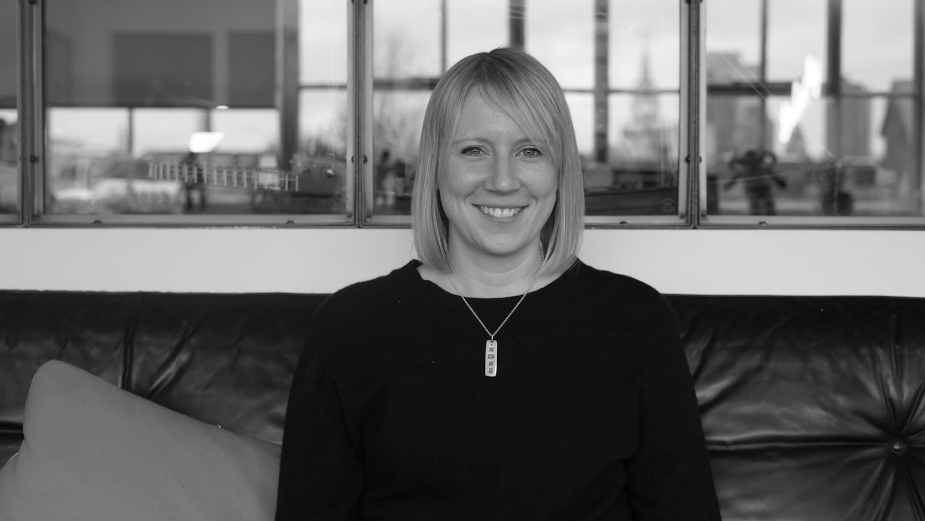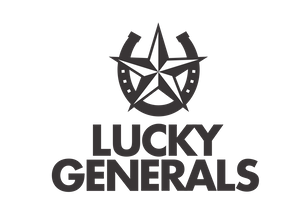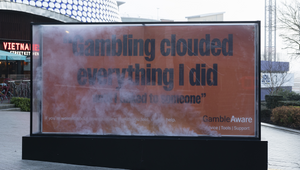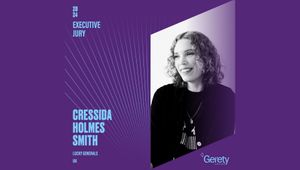
Planning for the Best: Joys of Strategy with Ruth Chadwick

Ruth heads up the strategy department at Lucky Generals in London. She started her career in Advertising as a graduate at DDB, where she mainly worked on the flagship Volkswagen account. She then moved to Wieden and Kennedy where she worked across a range of accounts including Three Mobile, Nokia and Universal music. From there, she moved to Crispin Porter + Bogusky where she most notably worked on the strategy for Milka and Paddy Power. She then spent five years at Grey London where she was deputy head of strategy and, amongst other things, helped GSK to define their global corporate brand strategy and helped Volvo cars to move from mainstream to luxury. She also worked on one of the agency's most awarded campaigns, Tate Britain's '500 Years of Stories'. Immediately before Lucky Generals she was a freelance strategy consultant and primarily worked in house at Headspace, where she was interim VP of Strategy. She joined Lucky Generals in early 2020 where she is strategy director.
LBB> What do you think is the difference between a strategist and a planner? Is there one?
Ruth> I don’t think so really, but I did always think ‘planning’ was a funny name for the job, because it means something very different when normal people say it.
LBB> And which description do you think suits the way you work best?
Ruth> Strategy. I’m terrible at planning. Just ask anyone who’s ever been on holiday with me.
LBB> We’re used to hearing about the best creative advertising campaigns, but what’s your favourite historic campaign from a strategic perspective? One that you feel demonstrates great strategy?
Ruth> It's probably still Honda GRRRR. Not because it's necessarily better than anything that’s come since, but because it’s the strategy that first made me want to go into advertising. I just remember thinking how clever it was to take something that people hate about your product and make it into something good. I also love ‘you’re not you when you’re hungry’. It’s a really simple insight that works really well across so many markets. It’s refreshing to see a global campaign that is genuinely insightful. And it's funny.
LBB> When you’re turning a business brief into something that can inform an inspiring creative campaign, do you find the most useful resource to draw on?
Ruth> Just stuff that’s happening in the world. From Corrie on a Monday night to global events of real cultural significance. I think it really helps to understand what everyone else is doing with their lives – what they’re reading, watching, making, talking about. I think it's easy to forget that our own experience isn’t typical, and one person’s trash is another person’s Saturday night treat.
LBB> What part of your job/the strategic process do you enjoy the most?
Ruth> I like working with young planners and seeing them come up with amazing stuff. And I love the creative work. I find it tough to do strategy with no output, and I love that someone can take your idea and make something exciting, funny, beautiful or just plain weird out of it.
LBB> What sort of creatives do you like to work with? As a strategist, what do you want them to do with the information you give them?
Ruth> The sort who really value strategy but aren’t slaves to it. My favourite are those will take the thinking and challenge it and pick holes in it and then come back with something that I could never ever have thought of. I also think craft skills are really important – so the brilliant writers and art directors who really pay attention to every tiny detail. Oh and I love a good row over the strategy and/or work – If you haven’t had one, you have to really question if it's good enough.
LBB> There’s a negative stereotype about strategy being used to validate creative ideas, rather than as a resource to inform them and make sure they’re effective. How do you make sure the agency gets this the right way round?
Ruth> I think good strategy should be a starting point for brilliant ideas. If the ideas you’re getting back aren’t brilliant, then you should be questioning the strategy as much as the work. Of course I’m not suggesting the work shouldn’t be effective, but there’s always more than one potential answer, so sticking doggedly to a singular strategy that isn’t getting you to decent work is something I’d try to avoid. I think if you give great creatives an interesting problem to solve, and they’re thinking about that as they’re developing work, then you should get to a place where you’re both creatively brilliant and effective. I’d hope we’re beyond the point where people are trying to sell ideas that won’t help a client’s business just because we like the look of them.
LBB> What have you found to be the most important consideration in recruiting and nurturing strategic talent? And how has Covid changed the way you think about this?
Ruth> On recruiting I think it's important to find people who bring something different from what you already have in the team. It’s really easy to hire people who are like you, but that’s not what makes for interesting thinking. On nurturing talent I’d say the most important thing is really backing them. People do well when they feel like they’re supported. I think, once you’ve hired someone, you have to believe in them. And if you do, they will repay you by being brilliant. As soon as you lose confidence in people they lose confidence in themselves. The only big difference I’d say Covid has made is that you can’t see people around and about the office etc, so you can’t tell when they’re struggling or too busy or not feeling good, so I’d say checking in has become more important.
LBB> In recent years it seems like effectiveness awards have grown in prestige and agencies have paid more attention to them. How do you think this has impacted on how strategists work and the way they are perceived?
Ruth> I think effectiveness has always been important, but that clients are (rightly) becoming increasingly demanding of it. I think it’s really important to be able to prove that your work works, and it does give the strategist more power, and more access to high level conversations. So I think it’s good for strategists and for agencies as a whole.
LBB> Do you have any frustrations with planning/strategy as a discipline?
Ruth> No, but I do object to your description of strategists as ‘the intellectuals of the industry’… I’ll never live up to that.
LBB> What advice would you give to anyone considering a career as a strategist/planner?
Ruth> Go for it. You can get paid work with really clever people and find out fun stuff about lots of different things. And people think you’re an intellectual. So it’s not bad, all in all.













